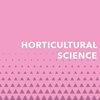芒果果实品质改善对水分胁迫的响应:环境约束下的适应意义
IF 1.3
Q3 HORTICULTURE
引用次数: 6
摘要
地中海农业正面临日益严重的缺水期,在未来几十年,缺水预计将对增长和生产力产生最不利的影响。本研究旨在评估西班牙地中海亚热带地区芒果果实的物理生化质量参数对不同灌溉剂量的响应。在两个监测季节,树木受到亏缺灌溉策略的影响,分别接受33%、50%和75%的作物蒸散量(ETC),并控制在100%ETC。根据研究结果和控制方面,水分胁迫的树木在75%、50%和33%的ETC下分别减产8%、11%和20%,根据灌溉量生产较小的果实。然而,在促进健康的植物化学物质(总可溶性固形物、维生素C和β-类胡萝卜素)的含量方面,水分胁迫的水果显著提高了它们的质量,特别是在33%的ETC下。因此,在不影响产量的情况下进行可持续的水资源管理是可能的,应该鼓励农民适应环境限制,生产出质量更高的水果。本文章由计算机程序翻译,如有差异,请以英文原文为准。
Mango fruit quality improvements in response to water stress: implications for adaptation under environmental constraints
Mediterranean farming is facing increasing periods of water shortage and, in the coming decades, the water reduction is expected to exert the most adverse impact upon growth and productivity. This study was performed to assess the response of the physico-biochemical quality parameters of mango fruits to different doses of irrigation in a Mediterranean subtropical area in Spain. During two-monitoring seasons, trees were subjected to deficit-irrigation strategies receiving 33, 50, and 75% of a crop evapotranspiration (ETC), and a control at 100% ETC. According to the findings and respect to control, the yield was reduced in 8, 11, and 20% for the water-stressed trees at 75, 50, and 33% ETC, respectively, producing smaller fruits in line with the amount of applied irrigation. However, the water-stressed fruits significantly enhanced their quality, in particular at 33% ETC, with regards to the content of the health-promoting phytochemicals (total soluble solids, vitamin C, and β-carotenoids). Thus, sustainable water management without a detrimental effect on the yield could be possible, and farmers should be encouraged to adapt to the environmental constraints, producing improved quality fruits.
求助全文
通过发布文献求助,成功后即可免费获取论文全文。
去求助
来源期刊

Horticultural Science
Horticulture-园艺
CiteScore
2.20
自引率
0.00%
发文量
23
审稿时长
>12 weeks
期刊介绍:
The journal publishes results of basic and applied research from all areas of horticulture, fruit-growing, vegetable-growing, wine-making and viticulture, floriculture, ornamental gardening, garden and landscape architecture, concerning plants that are grown under the conditions of European temperate zone, or field plants that are considered as horticultural cultures. Original scientific papers, short communications and review articles are published in the journal. Papers are published in English (British spelling).
 求助内容:
求助内容: 应助结果提醒方式:
应助结果提醒方式:


